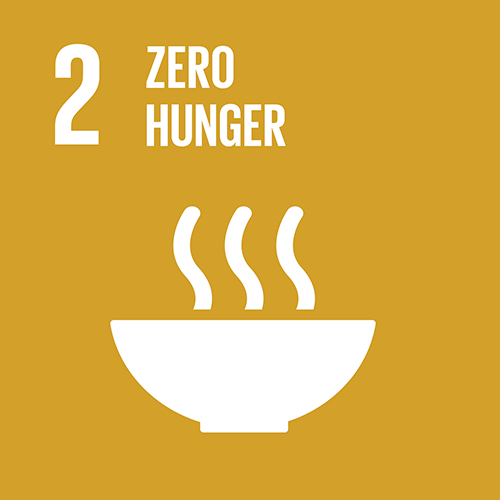From Waste to Organic Fertiliser in Nepal
Project type: Waste Management and Compost
Project location: Kathmandu, Nepal
Project status: In operation, credits available
Annual CO₂ reduction: 3,500 t
The project processes organic waste into compost. In this way, greenhouse gas emissions from traditional landfills are reduced and high-value fertiliser is produced for surrounding fields.
Waste is a major problem in Kathmandu, and organic waste amounts to almost 70 per cent of the total waste. To solve this problem, Biocomp Nepal has been created. In March 2011 – with support from myclimate – a pilot project started with a composting facility in the surroundings of Kathmandu. The waste from vegetable markets is collected and used to produce compost through aerobic degradation, which also reduces methane emissions from landfills and helps to combat the waste problems of the city. After successfully gaining experience in composting, Biocomp built a larger and partly mechanised composting plant in Saibu in 2013. Thanks to the conversion to row composting, larger quantities of waste can be processed and a high compost quality can be guaranteed. The compost produced meets international quality standards in terms of nutrient content.
myclimate made advance payments to finance the investment costs and thus contributed significantly to the realisation of the project. In the long term, the composting plant will be able to finance itself through the sale of the organic fertiliser.
Furthermore, the plant creates jobs for local residents. The plant specifically promotes gender equality by giving jobs primarily to women who are discriminated against by their families.
As waste is a major problem in other cities in Nepal and other developing countries too, the project can potentially be replicated in different places in Nepal or elsewhere. Initiatives have already been started.
In addition to the climate, two parties benefit from the project: the population in and around Kathmandu, who are freed from stinking mountains of waste, and the farmers, who can harvest better crops with the high-quality compost and cultivate their fields more sustainably. There is a need for available and cheap natural fertilisers, which means that myclimate and Biocomp Nepal are promoting sustainable agriculture.
What exactly are the CO₂ funds used for?
At the start of the project, the business plan was positive due to the inclusion of CO2 funds. The project would not have been possible without them. These funds have a direct impact on the project activities, as the annual monitoring and training activities are carried out thanks to the project’s own income, but also thanks to the CO2 funds that are paid each time carbon credits are issued.
Furthermore, Biocomp Nepal Pvt Ltd needs additional funding – in the form of carbon finance – to expand its activities such as the construction of new project sites. Raising additional funding is possible if the project can include CO2 funds to the financial forecast, without the carbon credits, finding new investment becomes difficult.
Project partners and implementers
The project activity is developed by Biocomp Nepal Pvt Ltd, a social enterprise, based in Nepal and managed by a Nepalese team. It was founded in 2011 and is active in waste collection and compost production. Biocomp Nepal aims to achieve the Sustainable Development Goals (SDGs), be socially responsible, economically viable and environmentally responsible. It is the project owner and manages, implements and monitors the project.
Monitoring, reporting and verification (MRV)
Gold Standard climate protection projects are monitored on an ongoing basis, meaning that the waste collection and compost production from the project is measured and checked continuously using an on-site calibrated weighing device. The associated monitoring report is verified by an independent auditor and submitted to the Gold Standard as a verification report. The strict monitoring procedures, training and local support help to maintain high quality standards throughout the project, ensuring that the power plant is functioning. This ensures that the project is successful in the long term and that the emissions reductions generated by the project are correct. More detailed information can be found under 'Documentation'.
This project contributes to 7 SDGs (as end of 2022):
Find out how myclimate reports these SDGs in our FAQ.
The following SDGs are verified by the Gold Standard:
In total, 43 permanet jobs have been created.
Over 62'000 tonnes of organic waste have been collected.
19,085 tonnes of CO2 have been reduced by the project activity.
These SDGs have been approved by myclimate:
The application of compost increases the yiels of the farmers and improves soil quality.
The reduction of waste dumped at the landfill reduces the contamination of water and soil.
The project supports women who are victims of domestic violence and have been cast out by the community by giving them jobs. 26 women have received a permanent job.
6,200 tonnes of compost produced.
Situation without project
Methane emissions from landfillDocumentations
Project standard

Awards

Project number
7166

















